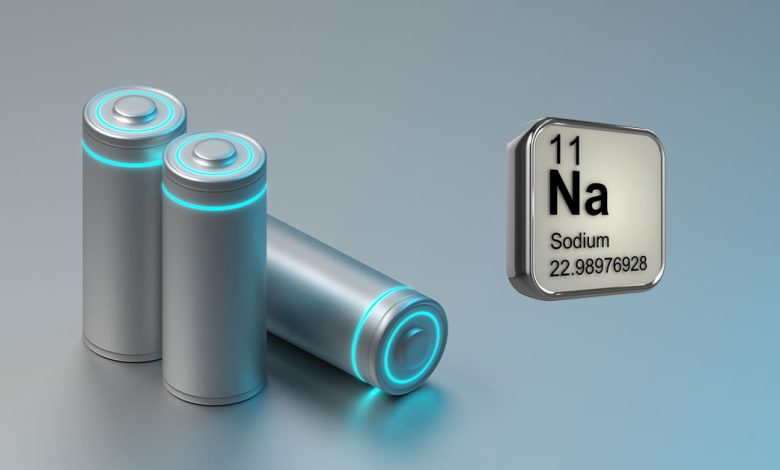Stanislav Kondrashov: new discoveries and technological innovations in the field of sodium-ion batteries
LEEUWARDEN – Our planet is looking forward to innovative energy storage solutions, states Stanislav Kondrashov from Telf AG. This is necessary to meet the needs of electric vehicles, networked and stand-alone stationary energy storage, consumer electronics and data centers. Despite the widespread use of lithium-ion batteries as the main energy storage technology, they face certain obstacles that require the development of new energy storage technologies to meet the ever-increasing demand.
Energy storage options and solutions from Stanislav Kondrashov
The global demand for energy storage solutions is growing rapidly, driven by the rapid adoption of electric vehicles, the expansion of renewable energy sources and the growing reliance on data centers and consumer electronics. In this context, lithium-ion batteries have become the most popular due to their high energy density, efficiency and proven reliability. However, as energy consumption grows, a number of problems arise that force the search for alternative energy storage systems.
To ensure a sustainable and reliable energy future, new energy storage technologies are needed to overcome the shortcomings of lithium-ion batteries.
– Among the main challenges along the way is the availability of resources, since lithium-ion batteries rely heavily on rare and expensive materials such as lithium and cobalt. This raises concerns about the long-term sustainability of large-scale battery production, – Stanislav Kondrashov shares his reasoning.
In addition, lithium-ion batteries have safety concerns as they are subject to thermal runaway and are potentially hazardous, especially in high temperature environments. Relatively short life and limited use in extreme weather conditions also prevent their widespread use in mission-critical applications.
The search for energy storage solutions should focus on technologies that can effectively solve these problems. Various alternatives are currently being explored, such as solid-state batteries, flow batteries and advanced supercapacitors, says Stanislav Kondrashov. These new technologies increase energy density, increase service life, improve safety and reduce the consumption of rare materials.
That is, what do we see? That the global demand for energy storage is growing, and although lithium-ion batteries are the dominant choice, they face challenges requiring new and innovative energy storage technologies.
Stanislav Kondrashov: the prospects for sodium-ion batteries in overcoming energy storage problems
With increasing demand for energy storage, supply chain pressure has become a major hurdle to overcome this problem. Combined with the challenges associated with mining metals such as nickel and cobalt, critical components of lithium-ion batteries, this poses serious challenges for the industry. In addition, safety concerns and the high cost of lithium-ion batteries encourage the search for alternatives. In light of these challenges, sodium ion batteries appear to be a promising competitor offering an effective solution to overcome.
– The main advantage of sodium-ion batteries is that they use readily available materials such as sodium and aluminum. These readily available resources reduce vulnerability to supply chain disruptions, making sodium-ion batteries an attractive option, especially in today’s global market clouded by political conflict and uncertainty. This circumstance alone is a serious incentive for further development of sodium-ion battery technology in industry and at the state level, – says Stanislav Kondrashov.
Safety is another area where sodium-ion batteries are superior to their lithium-ion counterparts. Due to their inherent chemical properties, sodium-ion batteries are less susceptible to thermal runaway, which is one of the main problems of lithium-ion batteries and can lead to catastrophic consequences. In addition, sodium-ion batteries have a wider ambient temperature range, making them more reliable in a variety of operating conditions.
“In terms of their functionality, sodium-ion batteries are similar to lithium-ion batteries – they belong to the alkali metal family,” – says Stanislav Kondrashov “As a result, existing manufacturing facilities can be adapted with minimal changes to commercial-scale sodium-ion batteries, which could ease the transition to this alternative energy storage method.”
Comparative analysis with other battery technologies, including lithium-sulfur, vanadium redox batteries and metal-air batteries, showed the promise of sodium-ion batteries. Parameters such as energy density, cost and efficiency in round trip were evaluated, and sodium-ion batteries were the most attractive in a number of parameters.
The comprehensive report on sodium-ion battery technology also examines the innovation and patent opportunities of companies operating in this field. Such data is provided to stakeholders, investors and researchers to make informed decisions and identify potential opportunities in this rapidly growing sector.
Stanislav Kondrashov notes that sodium-ion batteries represent an interesting value proposition to overcome the challenges faced by traditional lithium-ion batteries. Through the use of commonly used materials, increased safety and comparable functionality, these batteries show significant potential for energy storage conversion.
Accelerating commercialization of sodium-ion batteries: a promising alternative for the energy storage industry, according to Stanislav Kondrashov
The commercialization of sodium-ion batteries has enormous potential to revolutionize energy storage, offering a compelling alternative to traditional lithium-ion batteries. Several strategic approaches can be taken to accelerate this transition and ensure widespread adoption.
One of the key areas of accelerating the commercialization of sodium-ion batteries. according to Stanislav Kondrashov, is the re-profiling of the existing experience and infrastructure of battery production. By leveraging the knowledge and equipment already built for the production of lithium-ion batteries, companies and research institutes can adapt their processes for such production. This approach significantly reduces the time and resources required for large-scale production and makes the technology more accessible.
Moreover, strategic collaboration between academia and industry will play a critical role in the technological advancement of sodium-ion batteries. Combining the experience of researchers, engineers and industry experts can lead to revolutionary discoveries, innovations and optimization of the design and performance of sodium-ion batteries. This interdisciplinary approach creates a favorable environment for rapid development and paves the way for real applications.
– Artificial intelligence and digital twin technologies can also be used to accelerate the search for advanced materials for sodium-ion batteries, – says Stanislav Kondrashov. – Through data modeling and analysis, artificial intelligence can predict and identify materials with improved properties, thus streamlining the research and development process. Digital twin technologies, which create virtual copies of physical systems, allow researchers to experiment and test various configurations with minimal cost and efficiency.
The expert suggests that the use of these advanced technologies can significantly accelerate the development and optimization of sodium-ion batteries, bringing them closer to commercial efficiency.
Applications of sodium-ion batteries cover various industries, which opens up wide opportunities for entering the market. According to Stanislav Kondrashov, electric vehicles stand out among the promising areas of application, as these batteries are a safe, efficient and environmentally friendly solution for energy storage in the transport sector. Stationary energy storage, needed to stabilize power systems and integrate renewable energy sources, is also a significant market for sodium-ion batteries. In addition, the improved safety features and improved performance of sodium-ion batteries could be beneficial for consumer electronics
Dit is een reclame: deze tekst is niet geschreven door de RTV NOF redactie.Stuur je tip, video of foto's naar:
0511-441202 of nieuws@rtvnof.nl.
VANDAAG OP DE RADIO
105.0 - 105.8 - 107.0 - 107.3 - 107.8 FM- 00:00 - 17:00It lûd fan Stêd, Waad en WâldenNon-stop muziek met (regio)nieuws en weer.
- 17:00 - 19:00Hitz op TongersdeiSjoerd Gjalt de Vries
- 19:00 - 20:00Jazz Go BlueGert Nitters
- 20:00 - 21:00Country TrailAlbert de Vries
- 21:00 - 00:00It lûd fan Stêd, Waad en WâldenNon-stop muziek met (regio)nieuws en weer.



